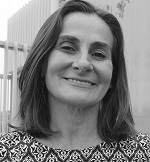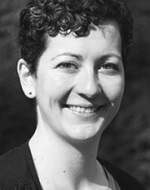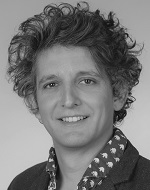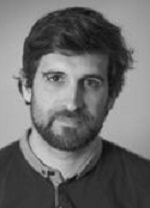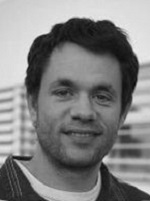
|
|
|
Invited speakersLaura Cantini, Machine Learning for Integrative Genomics, Pasteur Institute, Paris, France
Laura Cantini is leading the Machine Learning for Integrative Genomics group at Pasteur Institute. Mathematician by training, Laura works at the interphase of machine learning and genomics. Due to the advent of high-throughput technologies, multiple large-scale quantitative measurements, can be accessed for the same set of biological samples or cells. The focus of Laura’s research activity is to design machine learning methods able to co-analyze the numerous available omics data and translate them into actionable biological knowledge. She is PI of an ERC, “MULTIview-CELL”, which look at the integration of single-cell multi-omics data across space and time to unlock cellular trajectories.
Ana Conesa, Head of the Genomics of Gene Expression lab, Institute for Integrative Systems Biology (I2SysBio), Spanish National Research Council (CSIC), Valencia, Spain, Fellow of the International Society for Computational Biology, Member of the Spanish Royal Academy of Engineering
Ana Conesa's team is interested in understanding functional aspects of gene expression by combining a wide variety of high-throughput molecular techniques, including transcriptomics, epigenomics, proteomics, metabolomics, metagenomics and single-cell data, both for model and non-model species. The lab develops statistical methods and user-friendly software tools to analyze these multi-omics data. Her most current interest is the application of long reads sequencing technologies for transcriptome analysis and the integration of multi-omics data to model chromatin-metabolome regulation.
Florence Débarre, Senior researcher at the Institute of Ecology and Environmental Sciences of Paris 1, specialist in modeling eco-evolutionary dynamics through dialogue between mathematics and biology.
Florence Débarre shapes theoretical models, applied to ecologically realistic contexts to study various questions in evolutionary biology. Among other subjects, she studies the evolutionary dynamics of different pathogens, including those of the SARS-CoV-2 virus. In the context of the Covid-19 pandemic, she was particularly committed to give access to quality scientific information, whether in contact with journalists, as an active member of the MODCOV19 platform for coordinating data modeling projects of the pandemic, or by taking responsibilities in networks of researchers.
Alex Duval, University Professor - Hospital practitioner in the Oncogenetics of solid tumors department at the Pitié-Salpêtrière hospital, in Paris.
Specializing in molecular biology and medical genetics, Alex Duval is head of the “Microsatellite Instability and Cancers” team at the Saint Antoine Research Center (Inserm - Sorbonne University). The topics of his research group are focused on the study of mismatch repair (MMR)-deficient human tumors that develop through a particular molecular pathway characterized by the genetic instability of numerous microsatellite repeat sequences throughout the genome (MSI tumors).
Steven Gazal, assistant professor, Department of Population and Public Health Sciences at Keck School of Medicine, University of Southern California, Los Angeles, USA.
Steven Gazal is an assistant professor at the Center for Genetic Epidemiology, in the Department of Population and Public Health Sciences at USC Keck School of Medicine. His research focuses on developing and applying statistical methods to understand the genetic basis of human diseases, with expertise in combining population genetics, genetic epidemiology and functional genomics approaches. Prior to his position at Center for Genetic Epidemiology, Steven was a postdoc and a research associate at the Harvard School of Public Health and in the Program in Medical and Population Genetics at the Broad Institute.
Mickaël Ménager, Inflammatory responses and transcriptomic networks in diseases, Imagine Institute, Paris, France
Mickaël Ménager is an INSERM researcher at Imagine Institute heading the “Inflammatory responses and transcriptomic networks in diseases” team. His lab combines state of the art single-cell transcriptomic and chromatin accessibility experiments with new powerful computational biology tools, as a novel and an unbiased way to explore the complexity of innate immune response and autoinflammation. The idea is to use the emerging field of transcriptome-based network inference analysis to get a deeper and unbiased understanding of the diversity of the molecular mechanisms behind autoinflammatory diseases.
Christine Petit, Head of Auditory Therapies Innovation Laboratory at the Hearing Institute, Professor at Institut Pasteur, Paris, Professor Emeritus at Collège de France, Chair of Genetics and Cellular Physiology
Christine Petit is a specialist in human genetics. She first elucidated the molecular mechanisms underlying sex inversions in humans. Then, she moved towards the genetics of human sensory disabilities, in particular hearing impairment, and played a pioneering role in opening the field of hereditary deafness to genetic analysis and identifying a large number of genes involved in these pathologies. Since 2022, she is head of Auditory Therapies Innovation Laboratory at the Hearing Institute (Institut Pasteur), Paris
Hervé Seitz, Systemic impact of regulatory miRNAs, Institute of human genetics, Montpellier, France
Hervé Seitz is senior group leader in the team Systemic impact of regulatory miRNAs at IGH. MicroRNAs (“miRNAs”) are small post-transcriptional regulators. Their function is well characterized but their role is less well known on the macroscopic scale. His team is therefore working on the biological role of miRNAs by measuring the contribution of individual interactions between miRNAs and targets, on overall phenotypes in vivo. More generally, the team is working on a new vision of gene regulation: a regulatory target is not simply a gene that is affected by a regulatory pathway; it is a gene that is sufficiently affected by the regulatory pathway – the amplitude of the regulation measured must be compared with the robustness of biological systems in the face of fluctuations.
André Uitterlinden, Head of Population Genomics / Head of Human Genomics Facility/Complex diseases team leader, Erasmus Medical Centre, Erasmus University, Rotterdam, The Netherlands
André Uitterlinden is a Professor of Complex Genetics and head of the Laboratory of Population Genomics at the Erasmus Medical Centre. His previous research involved identifying genetic factors for common traits and diseases, and is now focused on working in the 1+ Million Genomes (1+MG) project in Europe, and implementing genetic information in health care and prevention settings. His team is working on genetics and genomics of several common complex diseases and their risk factors, including endocrine and reproductive traits, and generally ageing. They focus on bringing discoveries and genomic technology into the clinic.
|

